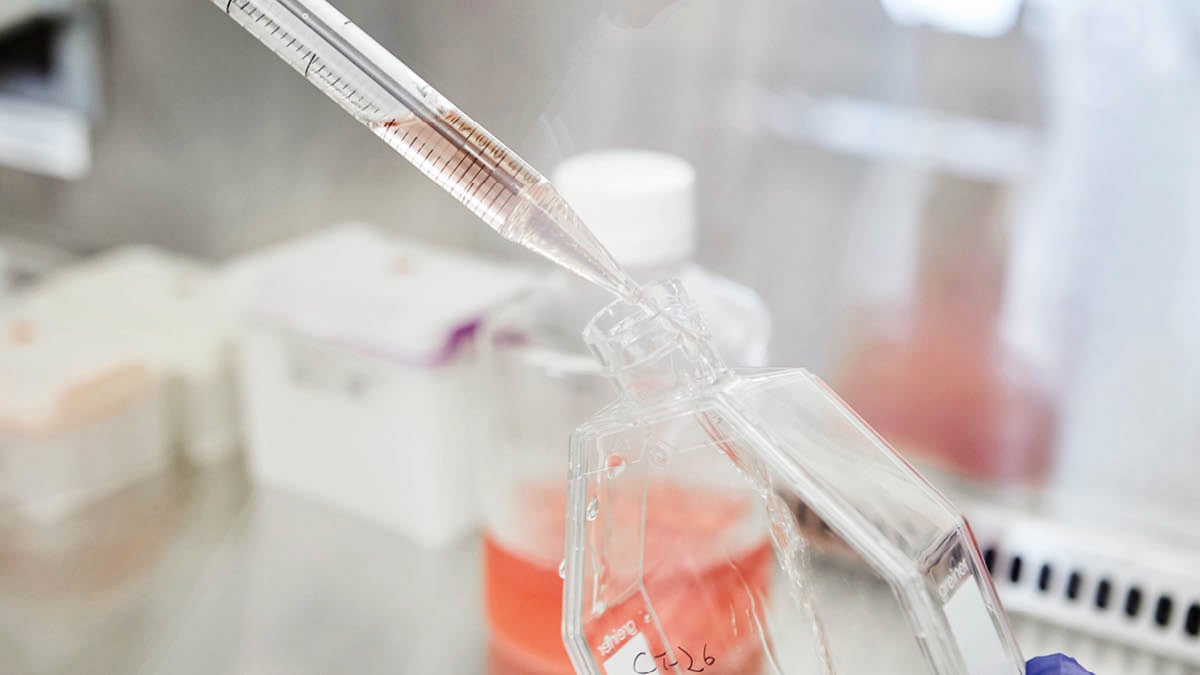
The multiplier effect of science, technology and culture is the ethos now underpinning research and development at GSK, explains Dr John Fleming.
As a post-Covid world faces up again to the challenges of cancer, GSK is poised to leverage its new “power of three” strategy that embeds a crucial cultural shift into the science and technology of R&D.
Dr Fleming explains: “It’s about driving the probability of success. Having the best technology and science achieves nothing, actually, if you can’t translate that into medicines that can reach patients.”
Already evident on the science and technology side of the strategy are the advances in significant R&D pathways. These include the development of immuno-oncology beyond its historical reliance on blockade, evolving it to better harness technologies that leverage the power of the human immune system, as well as solid tumour cell therapies, cancer epigenetics – which centres on the manipulation of gene expression – and an approach known as synthetic lethality.
When you have great technology, great people, and a very powerful and empowering culture and you put all three together, it really is unique
However, it is the addition of the cultural shift that positions GSK ideally for the cancer challenges ahead, believes Dr Fleming. Changes such as a move to smart risk-taking – focusing resources in specific areas that are most likely to succeed – are perhaps epitomised by corporate developments. This includes acquisitions of carefully selected oncology biopharmaceutical partners like TESARO, as well as new global research collaborations with leading cancer hospitals like the Royal Marsden and others in development.
Add in talent development and single accountable decision making, and you have the ingredients for a new disease-agnostic approach to R&D, says Dr Fleming, one which looks at how new technologies can contribute across a range of diseases, as well as creating fertile ground for the development of innovative modalities such as small molecules, antibodies, cell therapies and antibody-drug conjugates.
“When you have great technology, great people, and a very powerful and empowering culture and you put all three together, it really is unique,” he explains.
For Dr Fleming, new thinking in the way services are delivered post-Covid – moving to “super-centres” that co-locate experts and diagnostic services in one very specialist location – could play a crucial role in achieving that all-important early cancer diagnosis. “The ideal outcome is for the pathway to be as short as possible so that once a patient is diagnosed, they get the most appropriate treatment at the right time and we can help this happen through improving collaboration between the NHS, pharmaceutical companies and reimbursement bodies.”
Post-Brexit, new clinical associations outside Europe, such as Project Orbis, an initiative of the US Food and Drug Administration Oncology Center of Excellence (OCE), will also support service delivery through innovative and more timely licensing. Dr Fleming explains: “It’s important to understand that we are not just looking at licencing new medicines, but also new technologies, which require a very different way of looking at how you appraise cost effectiveness – so I do see this as an opportunity for the UK.”
So does all this mean we are close to a cure for cancer? “Everyone wants to cure cancer, but it’s very difficult to say that as a statement with a full stop and leave it there,” says Dr Fleming. “This is because cancer is not one, but thousands of diseases. But what we are getting better at is segmenting these diseases, not just by organ but by genetic aberration.”
For example, recent significant increases in survival with multiple myeloma possibly predict a time when certain cancers will become well-managed, life-long conditions, much like HIV today.
Dr Fleming says: “If you can detect cancer early enough and are able to offer targeted therapy that’s best for each patient, whether existing or new, then that’s where the future lies for me. And it’s a very exciting one for patients and for oncology as a whole.”
For more information please visit www.gsk.com
Sponsored by GSK

The multiplier effect of science, technology and culture is the ethos now underpinning research and development at GSK, explains Dr John Fleming.
As a post-Covid world faces up again to the challenges of cancer, GSK is poised to leverage its new “power of three” strategy that embeds a crucial cultural shift into the science and technology of R&D.
Dr Fleming explains: “It’s about driving the probability of success. Having the best technology and science achieves nothing, actually, if you can’t translate that into medicines that can reach patients.”

